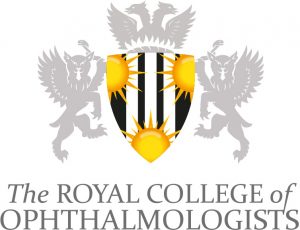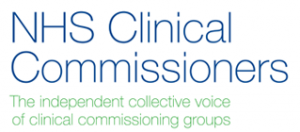New NICE Age Related Macular Degeneration guidance supports potential cost savings for the NHS
23 January 2018

 NHS Clinical Commissioners (NHSCC) and The Royal College of Ophthalmologists (RCOphth) welcome the publication today of guidance from the National Institute for Health and Care Excellence (NICE) which we believe can help to secure better value from the significant funds currently being spent on treating wet age related macular degeneration (AMD). In the current NHS financial climate this is even more important as commissioners are having to make difficult spending decisions for every NHS pound.
NHS Clinical Commissioners (NHSCC) and The Royal College of Ophthalmologists (RCOphth) welcome the publication today of guidance from the National Institute for Health and Care Excellence (NICE) which we believe can help to secure better value from the significant funds currently being spent on treating wet age related macular degeneration (AMD). In the current NHS financial climate this is even more important as commissioners are having to make difficult spending decisions for every NHS pound.
The guidance compares anti-VEGF agents for the treatment of wet AMD, and concludes that there are “…no clinically significant differences in effectiveness and safety…” between bevacizumab (Avastin) and the current market authorised medicines, ranibizumab (Lucentis) and aflibercept (Eylea). Furthermore, the lower cost of bevacizumab compared to ranibizumab and aflibercept, means that bevacizumab is the more cost-effective treatment.
Local Clinical Commissioning Groups have struggled to secure agreement with their providers to implement care pathways using bevacizumab because of anxieties about clinicians not adhering to the guidance from the doctor’s regulatory body, the General Medical Council (GMC), about the use of ‘off-label’ medicine. The NHSCC and RCOphth are working with the GMC to clarify the GMC position given the conclusions in the NICE guidance and the use of bevacizumab in the management of wet AMD for over ten years which pre-dates the UK licensing of both ranibizumab and aflibercept.
We recognise that the use of bevacizumab may result in an increased number of outpatient visits for patients undergoing treatment for wet AMD. Commissioners need to work with local providers to enable the delivery of treatment in a timely manner by ensuring sufficient capacity and resources within hospital eye services to achieve the right level of patient care and outcomes.
There is now the potential to make considerable cost savings whilst empowering ophthalmologists to make clinical judgements with individual patients on the most appropriate choice of treatment. We call on all Professional and Regulatory Bodies to work together to finally resolve this issue.
UPDATE: The GMC have issued a statement relevant to the use of Avastin by clinicians https://www.gmc-uk.org/news/media-centre/media-centre-archive/gmc-responds-to-new-nice-guidance
NICE Guidance for Age Related Macular Degeneration, publication NG82, January 2018
About NHS Clinical Commissioners
NHS Clinical Commissioners (NHSCC) is the independent membership organisation representing clinical commissioning groups (CCGs) in England. We currently have more than 90% of CCGs in membership. Our job is to help CCGs get the best healthcare and health outcomes for their patients and local populations. We give CCGs a strong collective influencing voice from the front line to the wider NHS, national bodies, Government, Parliament and the media. Follow us on twitter @NHSCCPress
For NHSCC media enquiries get in touch via press@nhscc.org or 020 7799 8692.
For The Royal College of Ophthalmologists media enquiries, email liz.price@rcophth.ac.uk or call 020 3770 5327
